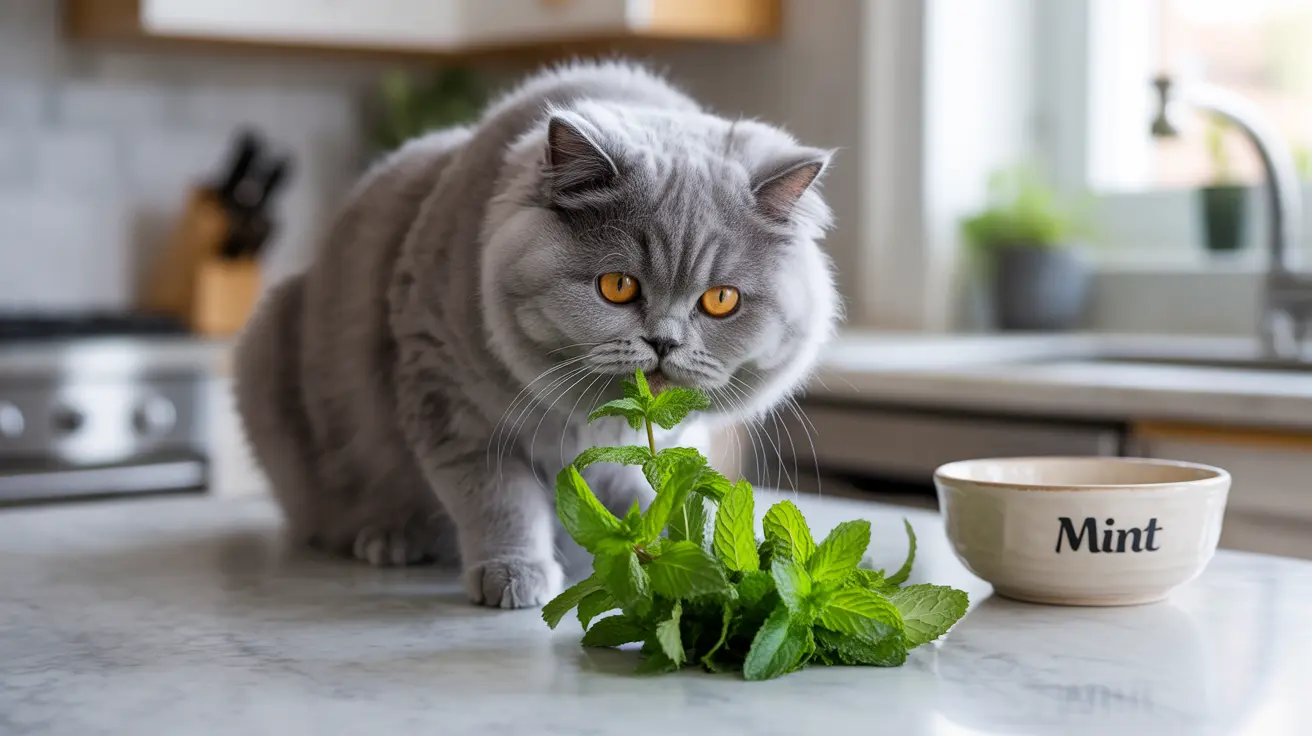If you're a cat owner who loves herbs, you might wonder about mint safety for your feline friend. While some herbs can be harmless or even beneficial for cats, mint presents some serious considerations and potential risks that every pet parent should understand.
In this comprehensive guide, we'll explore the relationship between cats and mint, including which varieties are dangerous, how to recognize signs of mint toxicity, and what alternatives are safe for your furry companion.
Understanding Different Types of Mint and Their Safety Levels
Not all mints are created equal when it comes to feline safety. Peppermint (Mentha piperita) and spearmint (Mentha spicata) contain essential oils that are toxic to cats. These common varieties can cause serious health issues due to cats' inability to properly metabolize certain compounds found in mint plants.
Pennyroyal (Mentha pulegium) is particularly dangerous and should never be anywhere near your cat. Even garden mint and common culinary varieties pose potential risks unless specifically verified as safe by a veterinary professional.
The Science Behind Mint Toxicity in Cats
Cats lack specific liver enzymes necessary to break down essential oils found in mint plants. This deficiency means that toxic compounds can accumulate in their system, potentially leading to liver damage or failure. Even small amounts of concentrated mint oils can be hazardous to your cat's health.
Warning Signs of Mint Poisoning
If your cat has been exposed to mint, watch for these symptoms:
- Gastrointestinal distress (vomiting, diarrhea)
- Excessive drooling
- Weakness or lethargy
- Difficulty breathing
- Tremors or unsteady walking
- Changes in behavior or mental state
The Hidden Dangers of Mint Essential Oils
Essential oils represent the most concentrated and dangerous form of mint exposure for cats. These oils can harm cats through:
- Direct ingestion
- Skin absorption
- Inhalation from diffusers or sprays
- Contact with treated surfaces
Safe Alternatives for Cat Owners
If you're looking for cat-safe options, consider these alternatives:
- Catnip (Nepeta cataria) - completely safe and often enjoyable for cats
- Catmint (Nepeta species) - less potent than catnip but still safe
- Cat grass - provides a safe, natural chewing alternative
Preventing Mint Exposure
Take these precautions to protect your cat:
- Keep mint plants out of reach or avoid growing them
- Never use mint essential oils in your home
- Store mint-containing products securely
- Check ingredient labels on pet products
- Inform houseguests about not using mint-based products
Frequently Asked Questions
Is mint safe for cats to eat, and which types of mint are toxic?
Most types of mint are not safe for cats to eat. Peppermint, spearmint, and especially pennyroyal are toxic to cats. The only safe "mint" relatives are catnip and catmint, which are actually different plants in the mint family.
What symptoms should I watch for if my cat ingests mint or mint essential oils?
Watch for vomiting, diarrhea, drooling, lethargy, difficulty breathing, tremors, and unsteady walking. If you notice any of these symptoms after mint exposure, contact your veterinarian immediately.
Can mint essential oils or diffusers harm my cat even without ingestion?
Yes, mint essential oils can harm cats through inhalation or skin absorption, not just ingestion. Avoid using mint essential oils or diffusers in homes with cats.
How should I respond if my cat shows signs of mint poisoning?
If you suspect mint poisoning, immediately remove your cat from the source of exposure and contact your veterinarian or the ASPCA Animal Poison Control Center. Don't wait for symptoms to worsen.
Are there any safe mint alternatives that my cat can enjoy?
Yes, catnip (Nepeta cataria) and catmint (Nepeta species) are safe alternatives that most cats enjoy. These plants are different from true mint species and are specifically safe for feline consumption.
Conclusion
While mint may be beneficial for humans, it poses significant risks to our feline companions. Understanding these risks and taking appropriate precautions can help keep your cat safe and healthy. When in doubt, always consult with your veterinarian before introducing any new plants or products into your cat's environment.






